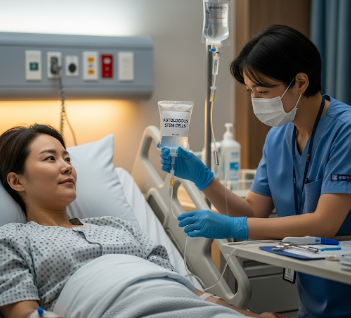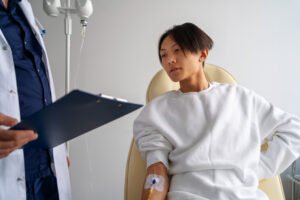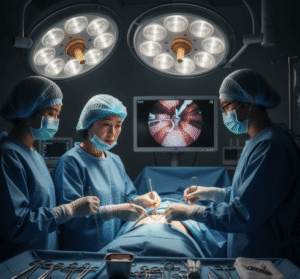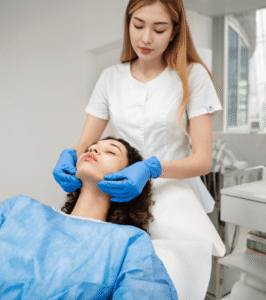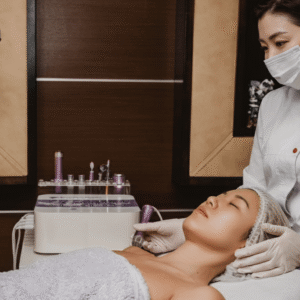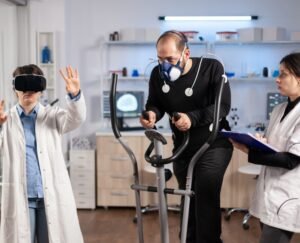Overview
Autologous Stem Cell Transplant (ASCT) is a medical procedure used to treat certain cancers and blood disorders by replacing damaged or diseased bone marrow with the patient’s own healthy stem cells. This procedure allows high-dose chemotherapy or radiation therapy to destroy cancerous cells while restoring the body’s ability to produce healthy blood cells.
In Korea, ASCT is performed in advanced hematology and oncology centers by highly experienced transplant specialists. Hospitals provide state-of-the-art facilities, sterile transplant units, and comprehensive supportive care, ensuring the highest success rates and minimizing complications. Patients also benefit from personalized pre-transplant evaluation, rehabilitation, and long-term follow-up care.
What is Autologous Stem Cell Transplant?
ASCT involves collecting hematopoietic stem cells from the patient’s own bone marrow or peripheral blood, storing them, and reintroducing them after high-dose chemotherapy. Unlike allogeneic transplants, ASCT uses the patient’s own cells, reducing the risk of graft-versus-host disease (GVHD).
Key points:
- Used to treat multiple myeloma, lymphoma, and certain solid tumors
- Enables administration of higher doses of chemotherapy than would otherwise be tolerated
- Reduces the risk of immune rejection, since the patient’s own cells are used
- Requires careful collection, processing, and reinfusion of stem cells
What are the benefits?
- High-dose chemotherapy effectiveness while preserving bone marrow function
- Reduces disease burden and improves chances of remission
- Minimizes risk of immune complications compared to allogeneic transplants
- ✅ Speeds recovery of blood cell production after chemotherapy
- ✅ Can be combined with targeted therapies or immunotherapy for better outcomes
- ✅ In Korea, hospitals provide specialized transplant units and 24/7 monitoring, ensuring patient safety
Procedure Details
1) How should I prepare for Autologous Stem Cell Transplant?
- ➤ Comprehensive evaluation including blood tests, imaging, cardiac and pulmonary assessment
- ➤ Discuss medications and stop those that may affect stem cell collection or immune function
- ➤ Pre-transplant counseling regarding procedure, risks, hospitalization, and lifestyle adjustments
- ➤ Ensure adequate support system for hospitalization and post-transplant care
- ➤ Vaccinations and infection prevention measures may be required
2) What happens during the procedure Autologous Stem Cell Transplant?
- ✅ Stem cell collection: Stem cells are harvested from bone marrow or peripheral blood
- ✅ Cryopreservation: Collected stem cells are frozen and stored until needed
- ✅ High-dose chemotherapy or radiation is administered to eliminate cancerous cells
- ✅ Stem cell infusion: Previously collected cells are thawed and reintroduced into the patient’s bloodstream
- ✅ Cells migrate to the bone marrow to regenerate blood and immune cells
- ✅ The procedure is conducted in a specialized, sterile transplant unit to reduce infection risk
3) What happens after an Autologous Stem Cell Transplant?
- ➤ Patients are closely monitored in hospital isolation units for infection and complications
- ➤ Supportive care includes antibiotics, transfusions, and growth factors to aid recovery
- ➤ Blood counts are regularly monitored until engraftment occurs (usually 2–4 weeks)
- ➤ Patients gradually resume normal activities under guidance
- ➤ Long-term follow-up includes monitoring for disease recurrence, late complications, and immune recovery
Risks / Benefits
Potential Risks:
- ➤ Infection due to temporary immune suppression
- ➤ Bleeding or anemia until blood counts recover
- ➤ Organ toxicity from high-dose chemotherapy
- ➤ Fatigue, nausea, or gastrointestinal symptoms
- ➤ Rare long-term complications, including secondary malignancies
Benefits:
- ✅ Enables higher-dose chemotherapy for better cancer control
- ✅ Reduces risk of graft-versus-host disease, since patient’s own cells are used
- ✅ Promotes faster recovery of blood cell counts
- ✅ Improves overall survival and remission rates
- ✅ In Korea, hospitals ensure strict infection control, monitoring, and advanced supportive care
Recovery and Outlook
- Hospital stay: Usually 3–4 weeks for isolation, supportive care, and monitoring
- Activity: Gradual return to daily activities once blood counts stabilize
- Immune recovery: May take several months; infection prevention and vaccinations are important
- Follow-up: Regular hematology visits, blood tests, and imaging to monitor disease status
- Long-term outcomes: Many patients achieve long-term remission, especially in multiple myeloma and lymphoma
- Lifestyle: Emphasis on balanced diet, infection prevention, and avoiding high-risk exposures
When To Call the Doctor
- ➤ Fever or signs of infection
- ➤ Uncontrolled bleeding or bruising
- ➤ Persistent nausea, vomiting, or diarrhea
- ➤ Shortness of breath, chest pain, or palpitations
- ➤ Any unusual swelling or pain
Best Korea Option / Process
- ✅ Korea provides world-class hematology and oncology centers for autologous stem cell transplant
- ✅ Hospitals offer pre-transplant evaluation, stem cell collection, high-dose chemotherapy, and post-transplant care
- ✅ Multidisciplinary teams ensure infection prevention, monitoring, and rehabilitation
- ✅ International patients benefit from VIP coordination, translation services, and comprehensive follow-up care
- ✅ Advanced techniques ensure high engraftment success, minimal complications, and improved remission rates

